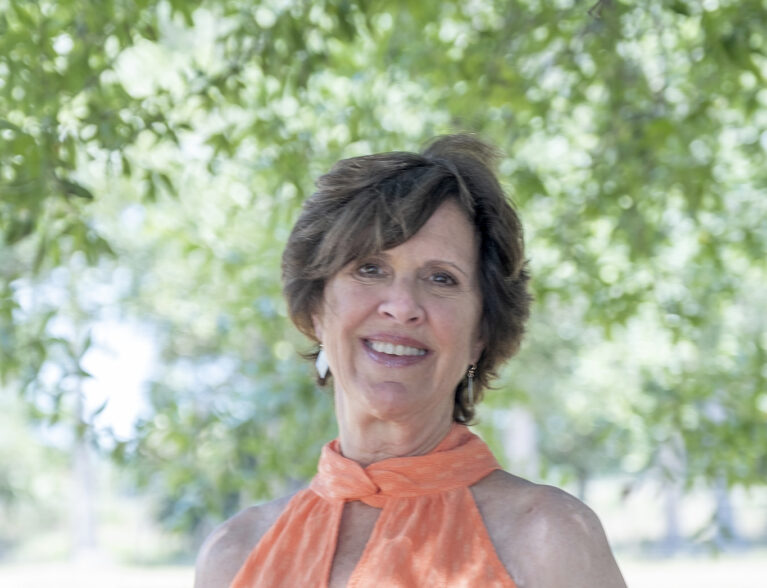
Happiness varies from person to person. What brings joy to one individual may not resonate with another. Happiness – which has been defined as a state of contentment stemming from making positive choices – encompasses emotions like joy, satisfaction, contentment and overall well-being.
Objective good fortune often makes people happy, but psychologists say subjective perception is just as important.
“Happiness really stems from your own core beliefs because that will influence our perspective on life,” said Suzanne Sunkel, a mental health therapist in Vero Beach. “The two most common complaints I hear as a therapist is ‘I’m not good enough’ and ‘I don’t matter.’
“While those feelings are generally expressed in relation to families, they are also valid in the workplace and in situations where the individual feels they have no control of the outcome, like the state of the economy or politics or government regulations. When someone feels they aren’t worthy, they tend to isolate more, which creates more negative feelings. We are made to connect with people and not be alone.”
While happiness eludes precise definition and measurement, a global study conducted by the Gallup World Poll and published by the Wellbeing Research Centre at Oxford University as the 2024 World Happiness Report, collected data from 3 million adults in 168 countries using more than 150 languages in an attempt to rank countries by their population’s perceived level of happiness.
This global endeavor underscores the growing emphasis on happiness in policymaking as countries aim to prioritize well-being alongside traditional economic metrics. Factors like GDP, life expectancy, social support, and perceptions of corruption influence national happiness rankings.
Some of the findings are surprising.
The top 10 countries have remained the same since before COVID. In the 2024 report, Finland remained the happiest place on earth, with Denmark running a close second place.
The top 10 happiest countries in order are: Finland, Denmark, Iceland, Sweden, Israel, Netherlands, Norway, Luxembourg, Switzerland and Australia.
But in the next 10 there is change, with the transition countries of Eastern Europe like Czechia, Lithuania and Slovenia rising in happiness, while the United States and Germany fell in the rankings to 23 and 24.
“The breaking down of the family unit is one of the reasons for negative emotions in this country,” Sunkel said. “The importance of family, friends and social connections can’t be overstated when it comes to happiness. The same is true [of spiritual values].”
Faith is God is reassuring. Similarly, belief in a system and worldview such as Christianity, Judaism, Buddhism or Vedanta gives people a much larger perspective, as well as existential guidance, both of which tend to make individual problems seem less weighty and easier to handle.
Negative emotions are more frequent in the U.S. now than in 2006-2010. During the survey period – 2021-23 – negative emotions were more prevalent in females than males, with the gender gap larger at older ages.
Sunkel stresses the importance of learning how to let go of negative emotions in order to move forward and reclaim your happiness.
“So many people let negative emotions from their past influence their present. I tell my clients that getting over a painful experience is much like crossing monkey bars,” she said.
“You must let go at some point to move forward. Happiness occurs when the soul is filled with peace and freedom is gained from the ability to move through fear.”
Life satisfaction – which is related to but different from happiness – varies across generations, with older adults generally reporting higher levels.
In comparing generations, those born before 1965 are, on average, happier than those born since 1980. Among millennials, evaluation of one’s own life tends to drop each year, while among Boomers, life satisfaction statistically increases with age.
Older adults with college degrees and those in higher social classes report higher life satisfaction than counterparts without formal education and those from lower economic strata.
Young people face special challenges to happiness.
“Our youth tend to isolate more and limit their social contact to the Internet and texting,” Sunkel said. “Social media has created unrealistic expectations for those comparing their lives to others and creates dissatisfaction.
“Happiness is a responsibility and it’s not going to be found without family, support, love and acceptance. When you look at a lot of people in poor countries who don’t have much of anything but family and tribal community, they tend to be very happy and satisfied. Just having food on the table helps but even that doesn’t give you that internal well-being and peace that family and faith does.”
Despite challenges, global benevolence is on the rise, especially for those born since 1980, who are even more likely than earlier generations to help those in need. Notably, feelings of social support which increase happiness remain more than twice as prevalent as loneliness.
Being optimistic and showing gratitude are standard mantras in the quest for happiness.
Those who focus on the positive are more likely to be happy and deal successfully with sad or tragic events. Psychologists and spiritual teachers say reality is as much about one’s mental state as it is empirical.
Suzanne Sunkel has a master’s degree in clinical Mental Health Counseling, is a Nationally Certified Counselor (NCC) and an EMDR therapist. She is affiliated with Professional Counseling and Services of Vero Beach, 772-770-2204.



